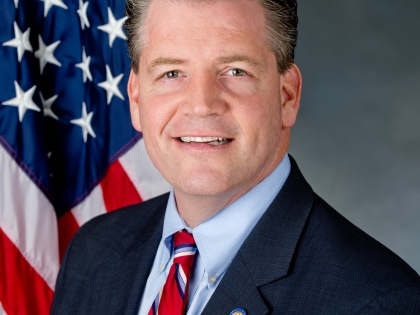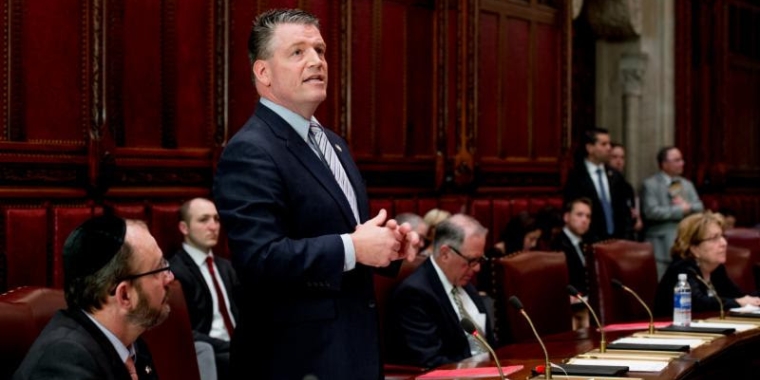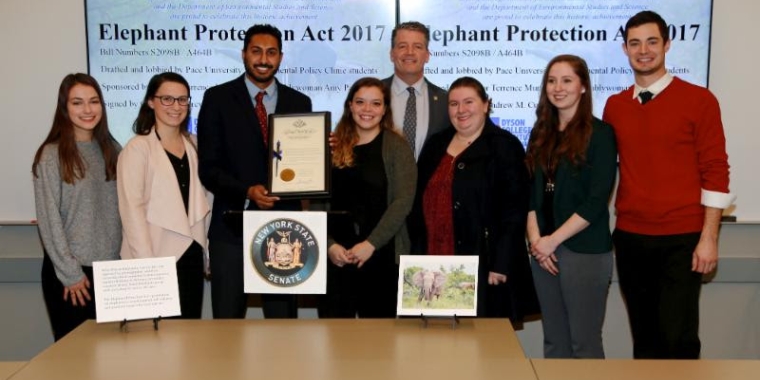
Murphy follows through on pension forfeiture legislation
January 31, 2017
-
ISSUE:
- Corruption
- Pension Forfeiture

ALBANY, NY - Former elected officials who shirked their responsibilities to the public by taking advantage of their offices all share a common distinction: Since being convicted they still receive their state pensions. Until now, there was little that could be done to stop corrupt elected officials from getting paid.
Since first taking office in 2014, Senator Terrence has promised to bring corrupt elected officials to heel. Senator Murphy has sponsored S418, which will amend the New York State Constitution by allowing the state to reduce or revoke the pension of a public officer that has been convicted of a felony related to their official duties. The amendment will include elected officials, direct gubernatorial appointees, municipal managers, department heads, chief fiscal officers, judges and policy-makers.
"The vast majority of public officials serve with integrity. The bill recognizes that the rights of taxpayers outweigh those of a corrupt public official expecting to still receive a pension," Senator Murphy said. "This constitutional amendment will remind public officers that when they were sworn into office, they promised to uphold the laws that govern the state, and any violation could result in the forfeiture of their pension benefits and the very real possibility that they will face criminal charges. I look forward to seeing it on the ballot this November and urge all of my constituents to approve it."
Majority Leader Flanagan said, "There must be zero tolerance for public corruption, and these ethics reforms are crucial to holding officials accountable and making sure they don't profit from abusing their positions. Now the measure will go to the voters so that they can have the opportunity to join with us in taking a strong stand against corruption."
"From the Governor, to the Legislature to local elected officials -if you violate the public trust and are convicted of a felony, you should forfeit the privilege of a public pension," said Senator Thomas Croci. "A public officer has a duty to maintain the public trust. The taxpayers have demanded exactly this type of reform. I have been proud to fight for this legislation. The voters will now have the opportunity to enact this historic constitutional reform on Election Day."
Under the measure, a public officer convicted of a felony directly related to his or her duties could be subject to pension reduction or revocation following notice and a court hearing. The court's decision to reduce or revoke pension benefits would consider factors such as the severity of the crime and whether a reduction might be proportionate to the offense.
The proposal would also allow the court to order pension benefits to be paid to an innocent spouse, minor dependents or other dependent family members after consideration of their financial needs and resources.
New York State enacted the Public Integrity Reform Act in 2011, which stated that any public official that joined the retirement system on or after November 13, 2011, is subject to pension forfeiture if convicted of certain felonies related to their public office. However, many public officials joined the retirement system before that date. The New York State Constitution states that public pensions involve a contractual relationship that cannot be reduced or impaired, unless of course, the State Constitution itself is amended.
The Legislature also intends to pass a joint resolution setting new requirements for members that earn additional income from outside employment. Under the joint resolution, any member of the Legislature earning more than $5,000 income through outside employment must submit a written request for an advisory opinion to the Legislative Ethics Commission to ensure the employment is consistent with the New York State Public Officers Law.
related legislation
Share this Article or Press Release
Newsroom
Go to Newsroom
Senator Murphy honors Peekskill honor student
December 15, 2017


Senator Murphy comments on Child Victims Act
December 14, 2017
